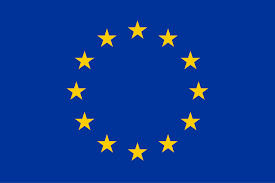Expatriate workforce in the UAE: a driving force behind economic growth
The UAE has become one of the most popular destinations for expatriates from around the world, and the expatriate workforce plays a crucial role in the country’s economic success. With its thriving economy, tax-free income, and modern lifestyle, the UAE has attracted millions of foreign nationals seeking better career prospects, lifestyle opportunities, and business ventures.
A Global hub for expatriates
As of recent statistics, expatriates make up over 80% of the population in the UAE. This high proportion of foreign workers is one of the distinguishing characteristics of the UAE's demographic landscape. Expats come from a diverse range of countries, including India, Pakistan, Philippines, Egypt, Western countries (such as the UK, USA, Europe), and many other parts of the world.
The country’s open economic policies, combined with its strategic location and high standard of living, make it an attractive destination for skilled professionals. From workers in construction and hospitality to executives, healthcare professionals, and technology experts, expatriates fill a wide range of roles across different industries.
Key sectors employing expatriates
- Construction and Engineering: The UAE has a booming construction sector, with expats playing a crucial role in large infrastructure projects like Dubai’s skyline, mega-malls, residential complexes, and transport networks. Skilled workers, engineers, and project managers from countries like India, Pakistan, and Bangladesh dominate this sector.
- Healthcare: The healthcare industry is another sector that heavily relies on expatriate professionals. Doctors, nurses, and medical specialists from countries like the Philippines, India, and Western nations make up a significant portion of the workforce in hospitals and clinics across the UAE.
- Finance and Banking: The UAE, particularly Dubai, is a global financial hub. Investment bankers, financial analysts, and accountants from various parts of the world work in the UAE’s financial institutions. Expats bring expertise in investment management, corporate banking, and insurance, helping the UAE solidify its place as a financial powerhouse in the region.
- Hospitality and Tourism: With the UAE being a top tourist destination, the hospitality sector is thriving. Expatriates from countries like India, Sri Lanka, and the Philippines work in hotels, resorts, restaurants, and tourism companies. The growth of tourism infrastructure, along with high-profile events such as Expo 2020 and the Formula 1 Grand Prix, has fueled the demand for workers in this sector.
- Technology and IT: As the UAE positions itself as a leader in technology and innovation, the need for skilled professionals in fields such as AI, software development, data science, and cybersecurity has led to a growing number of expatriates entering the tech industry. Professionals from countries like India, Pakistan, and Western nations make up a large proportion of the workforce in Dubai's Silicon Oasis and Abu Dhabi's tech hubs.
Why do expats choose the UAE?
- Tax-Free income: One of the main attractions for expatriates working in the UAE is the tax-free salary. The absence of personal income tax makes the UAE an appealing destination for professionals looking to save more of their earnings.
- High standard of living: The UAE offers a high standard of living, with luxurious accommodations, world-class healthcare, and a wide range of leisure activities. Dubai and Abu Dhabi are home to some of the best shopping malls, fine dining experiences, and entertainment options in the world.
- Career opportunities: The UAE’s growing economy and focus on sectors like technology, finance, construction, and renewable energy offer ample career opportunities for skilled workers. Many expatriates come to the UAE for high-paying jobs, career advancement, and the chance to gain international experience.
- Safety and security: The UAE is known for its low crime rates and high safety standards, which make it an attractive destination for expatriates and their families.
- Cultural diversity: The UAE is a melting pot of cultures and nationalities. Expats often find the multicultural environment welcoming and conducive to both personal and professional growth. The UAE's commitment to tolerance and cultural exchange has made it one of the most diverse countries in the world.
Challenges for the expatriate workforce
While the UAE offers numerous opportunities for expatriates, there are also certain challenges they may face:
- Cultural adaptation: Adjusting to a new country with different customs, values, and regulations can be challenging, especially for those who are unfamiliar with Islamic practices and the UAE’s strict laws regarding behavior, alcohol consumption, and public conduct.
- Cost of living: The UAE is known for its high cost of living, especially in cities like Dubai and Abu Dhabi. Rent, schooling, and daily expenses can be quite expensive, particularly for expatriates who don’t receive allowances for housing or transport.
- Job security: Expats are often employed under fixed-term contracts tied to their visa status. If they lose their job, they may have to leave the country within a specific timeframe. This can create a sense of job insecurity for expatriates, especially in times of economic slowdown or layoffs.
- Family support: Expats moving with families may face challenges in terms of finding suitable schooling, adapting to a new social environment, and obtaining visas for spouses or dependents.
Impact of the expatriate workforce on the UAE economy
The expatriate workforce is integral to the UAE's economy. Their contributions in key industries, such as construction, healthcare, finance, and tourism, support economic growth and development. The influx of skilled professionals and workers has helped the UAE become a global hub for trade, tourism, and innovation.
Moreover, expatriates contribute to the diversification of the UAE’s economy, particularly in sectors beyond oil and gas. They bring new skills, technologies, and innovations that drive the country’s progress in areas such as information technology, renewable energy, and finance.
Conclusion
The expatriate workforce is a driving force behind the UAE’s continued economic success. With its high salaries, tax-free income, and multicultural environment, the UAE remains an attractive destination for skilled professionals looking to build their careers and lives abroad. Despite challenges such as cultural adaptation and the cost of living, expatriates continue to play an essential role in shaping the future of the UAE’s diverse economy.


%402x.svg)
%402x.svg)


